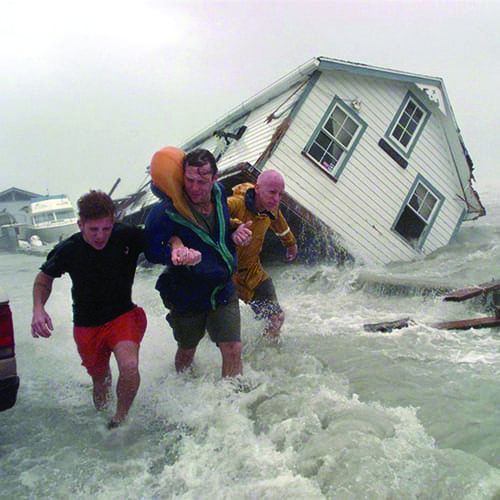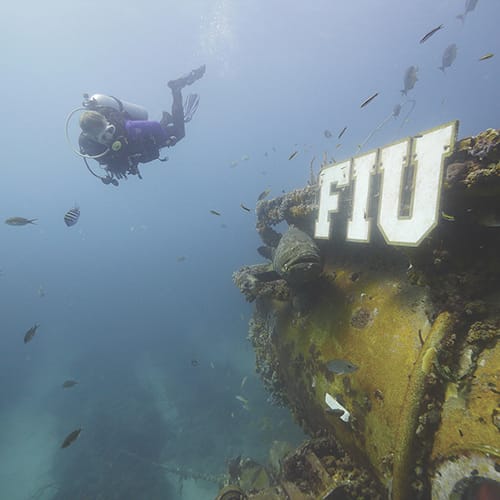Preeminent programs at FIU are defined as collaborative and highly innovative endeavors that demonstrate extraordinary success in providing unique learning opportunities and spearheading leading efforts in research and engagement. Receiving this distinct designation as a preeminent program is recognition for outstanding contributions to advancing FIU’s strategic plan and for working to enhance the university’s reputation at the national and international levels.
For more information about our preeminent programs, please visit: beyondpossible.fiu.edu/preeminent-programs/

The Bridge Engineering Program has a national and international reputation for expertly tackling challenging bridge engineering problems and providing the bridge industry and nation with innovative and advanced technologies. There are more than 607,000 bridges in the U.S. and about 25 percent of them need to be replaced or retrofitted. With more than 200 million trips a day over these substandard bridges, the potential for tragedy from a bridge collapse is great. Public safety and mobility considerations demand replacing or retrofitting these substandard bridges using new and advanced technologies.

The Center for Children and Families is a nationally recognized, interdisciplinary clinical research center committed to improving the lives of children and families struggling with mental health concerns. The mission of the Center for Children and Families is to (1) study the causes and nature of children’s mental health problems, (2) develop intervention and prevention models for evidence-based, cost-effective services that can be used to treat these problems, (3) provide services for children and families in clinic and community settings, and (4) educate students, families and professionals in the U.S. and abroad regarding the causes and treatment of childhood mental health and effective intervention and prevention.

The Extreme Events Institute (EEI), currently comprising the International Hurricane Research Center and the Disaster Resilience and Climate in the Americas program, has become a globally involved center for research, education and training in natural hazards and disaster risk management. The institute conducts multi-disciplinary research on hazards and vulnerabilities of all types, with emphasis on the role of pre-impact “risk drivers.” The institute includes faculty and researchers from the social and behavioral sciences, engineering, computer science, earth and atmospheric sciences, public health, public administration, business and architecture.

The Institute of Water and Environment represents one of the largest collections of faculty and students associated with water and environmental science in the United States. This preeminent program includes the Southeast Environmental Research Center, the Marine Education and Research Initiative and the Medina Aquarius Program, the Florida Coastal Everglades Long Term Ecological Research Program, plus an NSF-funded Center of Excellence on aquatic chemistry and ecotoxicology. It also includes the newly established Sea Level Solutions Center, bringing together faculty from nearly every college and school at FIU to address challenges posed by rising seas. In addition, the institute features organized research units on the sustainable built environment and informatics, international water group and socio-ecological systems.

The STEM Transformation Institute is dedicated to advancing educational research, practice and policy that facilitates educational change across the K-20 educational landscape. The institute leverages multidisciplinary collaborations across the College of Arts, Sciences & Education, College of Engineering & Computing and university to engage stakeholders across our community: students, faculty, administrators, local K-12 systems, local colleges, business and industry, foundations and national education organizations. The institute situates FIU as a living laboratory for developing future STEM professionals, especially those from statistically underrepresented groups, as a response to national calls for 100,000 new STEM teachers and an additional 1,000,000 STEM professionals by 2020.